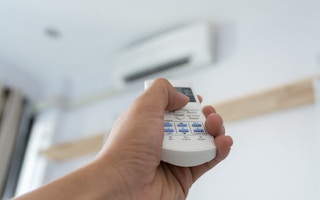New research out of Michigan State University has found that more than 50 per cent of potential energy savings from energy efficient homes can be lost if users don’t know how to use the buildings properly.
A study, published in Procedia Engineering, found that incorrect use of airconditioners, thermostats, ventilation and humidity control could have a dramatic effect on predicted energy savings from efficient homes.
“Technological advances in building and equipment account for only 43 per cent of energy consumption,” MSU assistant professor and study author Dong Zhao said. “That means that you could buy the greenest house on the market, yet your personal habits could waste more than 50 per cent of your energy savings.”
Dr Zhao said this was of concern both for individual homeowners as well as for commercial property owners with business and residential tenants.
He and his team of researchers collected data from 320 residential units that met the green building standard of Home Energy Rating Systems.
Preferred temperature settings in summer and winter were surveyed, how often windows were kept open, use of fans and space heaters, humidity settings, length of showers, dishwasher and washer and dryer use, and residents’ knowledge of building systems.
“
The education component is the key to achieving higher levels of energy and financial savings.
Dong Zhao, assistant professor, Michigan State University
“If an airconditioner achieves its highest efficiency at 72 degrees [22°C], but the resident likes it set at 68 degrees [20°C], there will be a lost value of energy savings,” Dr Zhao said.
The researchers said the findings point to the need for engineers to consider resident behaviour when designing technology to ensure maximum efficiency.
The study also found the biggest impact on improving energy efficiency could be resident education.
“Incorporating an orientation for apartment dwellers on all of the energy savings available to them would benefit the residents and the property managers,” Dr Zhao said. “The education component is the key to achieving higher levels of energy and financial savings.”
The next phase for the researchers will ben investigating the types of educational interventions that work best, and how they can be delivered successfully to residents.
This story was published with permission from The Fifth Estate.








